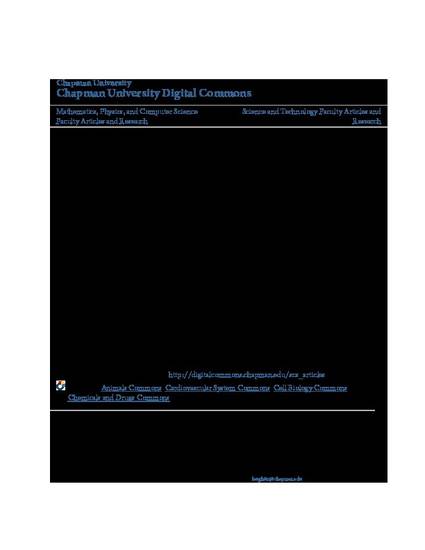
© 2015 Elsevier Ltd. Cannabidiol (CBD), a major nonpsychotropic cannabinoid found in Cannabis plant, has been shown to influence cardiovascular functions under various physiological and pathological conditions. In the present study, the effects of CBD on contractility and electrophysiological properties of rat ventricular myocytes were investigated. Video edge detection was used to measure myocyte shortening. Intracellular Ca2+ was measured in cells loaded with the Ca2+ sensitive fluorescent indicator fura-2 AM. Whole-cell patch clamp was used to measure action potential and Ca2+ currents. Radioligand binding was employed to study pharmacological characteristics of CBD binding. CBD (1μM) caused a significant decrease in the amplitudes of electrically evoked myocyte shortening and Ca2+ transients. However, the amplitudes of caffeine-evoked Ca2+ transients and the rate of recovery of electrically evoked Ca2+ transients following caffeine application were not altered. CBD (1μM) significantly decreased the duration of APs. Further studies on L-type Ca2+ channels indicated that CBD inhibits these channels with IC50 of 0.1μM in a voltage-independent manner. Radioligand studies indicated that the specific binding of [3H]Isradipine, was not altered significantly by CBD. The results suggest that CBD depresses myocyte contractility by suppressing L-type Ca2+ channels at a site different than dihydropyridine binding site and inhibits excitation-contraction coupling in cardiomyocytes.
- Calcium channels,
- Cannabidiol,
- Cannabinoid,
- Contraction,
- Intracellular calcium,
- Ventricular myocytes
Available at: http://works.bepress.com/lina-alkury/31/